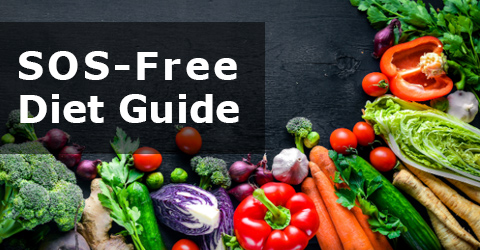
Plant-based or plant-forward eating patterns focus on foods primarily from plants. This includes not only fruits and vegetables, but also nuts, seeds, oils, whole grains, legumes, and beans. Rather, you are proportionately choosing more of your foods from plant sources. What is the evidence that plant-based eating patterns are healthy? Much nutrition research has examined plant-based eating patterns such as the Mediterranean diet and a vegetarian diet. The Mediterranean diet has a foundation of plant-based foods; it also includes fish, poultry, eggs, cheese, and yogurt a few times a week, with meats and sweets less often. The Mediterranean diet has been shown in both large population studies and randomized clinical trials to reduce risk of heart disease, metabolic syndrome, diabetes, certain cancers specifically colon, breast, and prostate cancer, depression, and in older adults, a decreased risk of frailty, along with better mental and physical function. Vegetarian diets have also been shown to support health, including a lower risk of developing coronary heart disease, high blood pressure, diabetes, and increased longevity. Plant-based diets offer all the necessary protein, fats, carbohydrates, vitamins, and minerals for optimal health, and are often higher in fiber and phytonutrients. However, some vegans may need to add a supplement specifically vitamin B 12 to ensure they receive all the nutrients required.
A plant-based diet is a diet consisting mostly or entirely of foods derived from plants including vegetables, grains, nuts, seeds, legumes, and fruits and with few or no animal-source foods. As of the early 21st century, it was estimated that 4 billion people live primarily on a plant-based diet, some because of limits caused by shortages of crops, fresh water, and energy resources. Vegan author Ellen Jaffe Jones wrote about the origins of the term in a interview. It was developed to take the emphasis off the word ‘vegan’, because some associated it with being too extreme a position, sometimes based exclusively in animal rights versus a health rationale. Some sources use the phrase “plant-based diet” to refer to diets including varying degrees of animal products, for example defining “plant-based diets” as diets that “include generous amounts of plant foods and limited amounts of animal foods” and stating that “The American Institute for Cancer Research and the World Cancer Research Fund call for choosing predominantly plant-based diets rich in a variety of vegetables and fruits, legumes, and minimally processed starchy staple foods and limiting red meat consumption, if red meat is eaten at all”. Although herbivory a diet entirely of plants was long thought to be a Mesozoic phenomenon, evidence of it is found as soon as the fossils which could show it. Within less than 20 million years after the first land plants evolved, plants were being consumed by arthropods. While amphibians continued to feed on fish and insects, some reptiles began exploring two new food types: the tetrapods carnivory and plants herbivory. Carnivory was a natural transition from insectivory for medium and large tetrapods, requiring minimal adaptation. In contrast, a complex set of adaptations was necessary for feeding on highly fibrous plant materials.
In Peter S. Coconut milk is high based saturated fat and therefore a low fat plant is a better choice to use on a daily basis. Vegetarian and information symbolism List of vegan media Juice fasting Vegetarian and vegan diet diet Vegaphobia Semi-vegetarianism Macrobiotic diet Pescetarianism Pollotarianism. From Wikipedia, the free encyclopedia. Retrieved 21 April September Free Aaltola Carol J. Categories : Diets Edible plants Plant-based diets.
